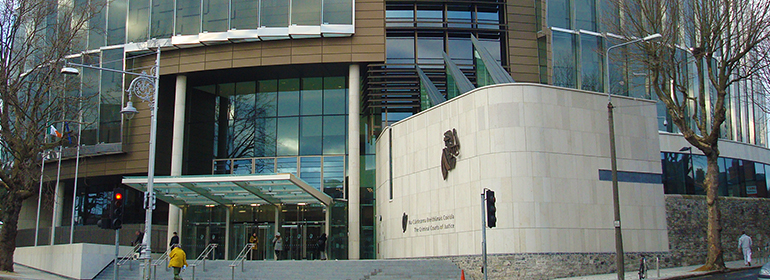Brian Finnegan, Editor of GCN, spoke with Marian Finucane on RTE Radio 1 about the Turing Law, pardons for men convicted of engaging in homosexual acts and the possibility of an apology issued by the government for these convictions
Yesterday, Brian Finnegan took to the air to speak with Marian Finucane on RTE Radio 1 yesterday about the posthumous pardon being granted to gay and bisexual men in the UK.
Finucane began by asking Finnegan: “What did happen this week and how did it come about?”
“So the Lib.-Dem. peer Lord Sharkey proposed an amendment to the Policing and Crimes Bill, called Turing’s Law it’s based on the pardon of Alan Turing who was the man who was largely credited with winning the second world war for The Allies,” Finnegan explained.
Alan Turing is widely accredited with helping the Allies win the Second World War by breaking the Enigma code, and also as the father of computing science, having created the first computer.
“So Turing after that he stayed in the secret service and in 1952 he was convicted of a sexual offence for having sex with another man and he chose chemical castration rather than go to jail.
“So he lived for two more years and he killed himself with cyanide poisoning after that.”
Royal Pardon
“So in 2013, after a petition of about half a million signatures he was given a Royal Pardon. And this is based on that pardon that all men, posthumous pardons that men who’ve died since who were convicted of criminal offences have been granted pardons.”
“There were 65,000 convictions before 1967,” Finnegan said. In Ireland finding an exact number is more difficult.
“In 1977 the Dáil were told that there were 44 prosecutions in the three years previously. In the 1950s, there was something like 650 people convicted between 1927 and 1961 of gross indecency or having sex with other men.
In the UK, there’s a posthumous pardon that is automatically going to be granted, but for those still alive, Finnegan explained that they would have to contact authorities to receive the pardon.
Gross Indecency
“Should it not be more of an apology,” Finucane asked.
“That’s what one man George Montague who was convicted in 1974 told BBC News Night [said], that it should be an apology, and not a pardon, that Alan Turing did not commit a crime […] that he was only able to fall in love with another man,” Finnegan said.
However, those convicted of gross indecency were not just men who had sex with other men. The charge covered a “panoply of different offences”.
“It’s not just about being gay, but a very large number of those people would have been convicted for having sex with other men, and often they were pursued or entrapped and that happened in Ireland too.”
“At a time when it was completely underground to be gay, you couldn’t express your sexuality in any overt way. Many people weren’t able to form relationships because of it. A lot of men had sex in secluded public spaces, they found other ways to meet and they were entrapped in that way.”
Oscar Wilde
When discussing Oscar Wilde Finnegan explained that it is unclear whether a conviction would be pardoned in his case.
“It’s a difficult one with Oscar because Oscar was convicted of gross indecency, but he procured sex from men and a lot of them were young men and they could have been under age.
“So it’s a grey area. I don’t know if Oscar will be given a posthumous pardon because of this.”
“To me it seems kind of odd that you would get a pardon. I wouldn’t seek a pardon for being heterosexual, do you know what I mean,” Finucane said.
Ireland’s Journey
That Ireland has come from convicting people for homosexuality, to decriminalisation in 1993, to the same-sex marriage referendum in 2015 seemed incredible to Finnegan.
“It’s unbelievable,” Finnegan said. “Yesterday I saw a couple in Dublin, a gay male couple holding hands. I always kind of clock it and go it’s amazing to see that.
“I was thinking you know, people like Donal Og Cusack and Conor Cusack who play for the GAA, they’re Irish sports men, they’re looked up to in that way and they can come out and they can be gay.
“Before ’93 they were committing criminal offences in the privacy of their own homes if they were having consensual sex with their partners.”
“Ireland has come on a very big journey over the last decade or so.”
Irish Apology
On a final note, Finnegan believes that the Irish government should issue an apology to those who were convicted for having consensual gay sex before the decriminalisation of homosexuality.
“I think if you create a system where people have to go and ask for pardon, because obviously if forty-four people were convicted before 1979, a lot of them are alive still,” Finnegan said.
“[That] they have to go the authorities and ask for a pardon is not a good thing.
“I think an apology may be the way forward.”
Listen to Brian Finnegan on Marian Finucane’s Sunday show below or on RTE by clicking here.
© 2016 GCN (Gay Community News). All rights reserved.

comments. Please sign in to comment.